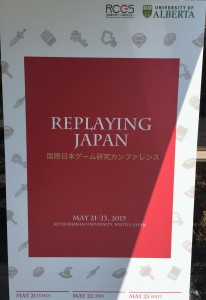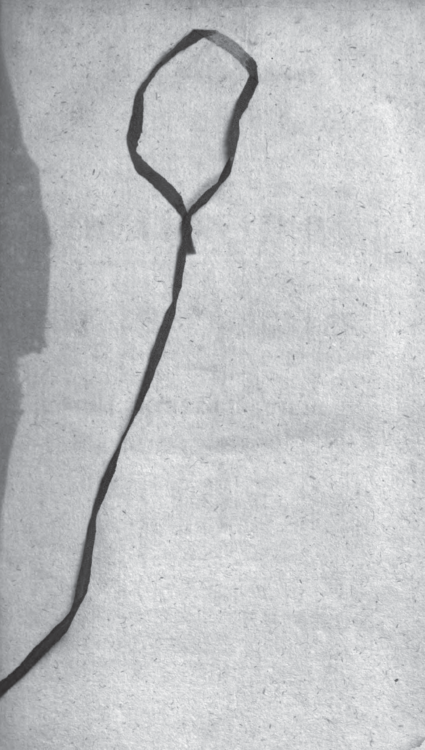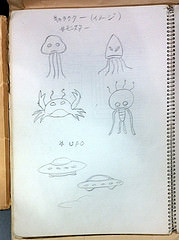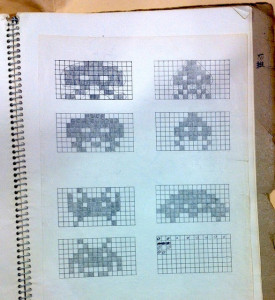I’m at the Replaying Japan 2015conference at Ritsumeikan University, Kyoto, Japan. You can see my conference notes here. The conference features a keynote by the father of the Final Fantasy games who will talk on “From the Famicon to the World: The Lineage of JRPGs’ Globalization from the Perspective of the Genesis of Final Fantasy.”
Category: Conference
Ted Hewitt speaks at University of Alberta
Text Hewitt spoke today on “The Perils and Prospects of Digital Scholarship in the 21st Century Canada: Tri-Agency Research Data Initiative” at our Research Data Management week. Some of the things he talked about follow.
Canada is not leading on data stewardship. We need to catch up so that we can take advantage of what the world has to offer and we need to offer what Canada has to the world. Data management capacity is increasingly linked to Canada’s international competitiveness.
We used to do a literature review when starting a project. Now we also look for data sets that we can use so we aren’t re-searching to create useful data.
Around the World Conference
Last week we held our third Around the World Conference on the subject of “Big Data”. We had some fabulous panels from countries including Ireland, Canada, Israel, Nigeria, Japan, China, Australia, USA, Belgium, Italy, and Brazil.
The Around the World Conference streams speakers and panels from around the world out to everyone on the net. We also edit and archive the video clips. This model allows for a sustainable conversation across continents that doesn’t involve flying people around. It allows a lot people who wouldn’t usually be included to speak. We also find there are technical hiccups, but that happens in on-site conferences too.
Editorialisation Et Nouvelles Formes De Publication
In the last couple of weeks I’ve been at two interesting conferences and took research notes.
- I gave a keynote on “Big Data and the Humanities” at the Northwestern Research Computation Day (link to my research notes). I gave a lot of examples of projects and visualizations.
- At the Éditorialisation Et Nouvelles Formes De Publication (link to my research notes) conference I spoke about “Publishing Tools: A Theatre of Machines”. I showed how text analysis machines have evolved.
SSHRC Stories and Success 2014
Today we had our annual celebration of SSHRC funded researchers, SSHRC Stories and Success 2014. I introduced the speakers and the theme.
Thank you Associate Vice-President Johnston. Good afternoon colleagues, it is my pleasure to introduce the theme for this year’s event, which is:
Emerging Technologies: Competing Needs and Challenges
I should begin by confessing that as I was preparing for this, I had one of those Emperor’s new clothes research moments when I realized I had no idea what really are the emerging technologies and no metric with which to evaluate my intuitions. It is easy to become convinced certain technologies one understands are emergent, but that doesn’t mean that there aren’t other more important trends or that one isn’t blinded by ones commitments.
Fortunately it turned out that the Wikipedia actually has a list of emerging technologies to keep me honest so I have chosen a few from that list as a way of introducing the theme and the researchers who will talk to it.
- An area where there are a number of emerging technologies coming now to market is display technology and virtual reality. From consumer 3-D televisions that may or may not take off to Virtual Reality head sets like the Oculus Rift that was recently bought by Facebook for 2 billion – there is a lot of change in how we can watch on the horizon. I recently had a chance to try out the Occulus Rift development headset with content from Canadian research and design teams and it is a good news bad news story. The technology works and is solid – it won’t be long before it is brought to market, but there still is a nausea problem. Any of you who remember the VR excitement of 1990s will remember nausea was a problem then too. Maybe this is a re-emergining technology. More important than the technology, however, are the forms of engagement and immersion being imagined for the virtual and Patricia Boechler will be talking about The Third Dimension: Immersive Virtual Environments in Educational Research and Practice.
- Of particular interest to us here in Alberta is a second category of emerging technologies and those are the emerging energy technologies and resource extraction technologies. The Intergovernmental Panel on Climate Change recently released their 5th assessment report titled “Climate Change 2014: Mitigation of Climate Change.” One of their conclusions for which there is high evidence and high agreement is that “deep cuts in emissions will require a diverse portfolio of policies, institutions, and technologies as well as changes in human behaviour and consumption patterns.” That sounds like a call for social science and humanities research and partnerships. The University of Alberta is one of the places where badly needed interdisciplinary research is emerging around the challenges of the interaction of technologies, policies and human behavior. The story of climate change and how we mitigate its effects is ours to study and change and today we have Gordon Gow who will talk about Stewarding Technology for Inclusive Innovation.
- The third emerging technology I want to mention goes under the rubric of the Internet of Things. The idea is that soon we will be able to afford to embed networked computing in everyday appliances like your refrigerator and associated consumer products like the milk that goes into the fridge. Then the fridge could keep track of the milk and automagically tell you when you needed to buy more. The conveniences are endless – I could use my smartphone to tell if I had left the stove on or really locked the door every morning before I turn back to check. But there is another side to such a network of things. Bruce Sterling, a science fiction writer, has an essay on the Internet of Things that argues that the story of the Internet of Things has an overlooked history (smart appliances crop up regularly), and that this time the story of convenience is being harnessed for economic surveillance. He rightly points out that we are not the customers of companies like Google and Facebook – the customers who pay Facebook for a service are the advertisers and those who buy data about us – . If all our appliances are capable of transmitting even more data about us, who will gather that data, who will mine it, benefit from it and sell the analysis? Kevin Haggerty, our second speaker thinks about surveillance issues broadly going beyond the hi-tech concerns I have and he will be talking about Technologies of Nature: Surveillance at the Limits of the Human.
In closing I want to say a few words about how the social sciences and humanities are turning to think through emerging technologies. The Canadian science fiction writer William Gibson who coined the term cyberspace and helped us imagine that emerging technology in his 1984 novel Neuromancer has famously said that “The future is already here — it’s just not very evenly distributed.” Too often people outside the social sciences, arts and humanities think we are last to whom it is or should be distributed in the academy, but that is not the case historically nor today. If anything it is the social science, arts and humanities community that asks what technology is, how it emerges, how it is distributed, and how it can be used creatively. We are already deeply involved studying the emergence of technologies in the imagination and in use. We teach students to beware of the hype around technology and we teach them to use technologies creatively. What is emergent is a multifaceted and interdisciplinary engagement in research and teaching with technologies and their very idea.
The Material in Digital Books
Elika Ortega in a talk at Experimental Interfaces for Reading 2.0 mentioned two web sites that gather interesting material traces in digital books. One is The Art of Google Books that gathers interesting scans in Google Books (like the image above).
The other is the site Book Traces where people upload interesting examples of marginal marks. Here is their call for examples:
Readers wrote in their books, and left notes, pictures, letters, flowers, locks of hair, and other things between their pages. We need your help identifying them because many are in danger of being discarded as libraries go digital. Books printed between 1820 and 1923 are at particular risk. Help us prove the value of maintaining rich print collections in our libraries.
Book Traces also has a Tumblr blog.
Why are these traces important? One reason is that they help us understand what readers were doing and think while reading.
Replaying Japan 2014
Last week we organized Replaying Japan 2014 here in Edmoton. This was the second international conference on Japanese game studies and the third event we co-organized with the Ritsumeikan Center for Game Studies (in Japanese with English pamphlet).
The opening keynote was by Tomohiro Nishikado, the designer of Space Invaders – the 1978 game that launched specialty arcades in Japan. He talked about the design process and showed his notebooks which he had brought. Here you can see the page on his notebook with the sketches of the aliens and then the bitmap versions. I kept my conference notes on his talk and others here.
The conference was a huge success with over 100 attendees from 6 countries and over 20 universities. We had people from industry, academia and government too. We had a significant number of Japanese speakers despite English being the language of the conference. After the conference we met to plan for next year’s conference in Kyoto. See you there!
This conference was supported by the Japan Foundation, the GRAND Network of Centres of Excellence, the Prince Takamado Centre, the Ritsumeikan Center for Game Studies, CIRCA, and the University of Alberta.
DH 2014, Dagstuhl, and Exploiting Text
Over the last month I’ve been to a number of conferences that I have been writing conference notes on.
- At the beginning of July I was at DH 2014 in Lausanne Switzerland where I gave a workshop with Stéfan Sinclair on Your Very Own Voyant, participated in some panels and gave a paper (also with Stéfan).
- I was at a Dagstuhl around data science and digital humanities at the end of July. We had a fascinating conversation. I ended up in a workshop on the ethics of big data which is going to become yet something else I wish I had the time to study properly.
- At the beginning of August I went to a workshop at Waterloo that was in honour of Frank Wm. Tompa, Exploiting Text. This workshop had speakers, including myself, who spoke to issues that Tompa was interested in from dictionaries to algorithms for text retrieval. I was often lost in the algorithm talks but it was fascinating to listen to a different view of text.
CSDH-SCHN 2014 Conference
I have posted my CSDH-SCHN 2014 conference notes now that the conference is over. I will probably put up some notes on CGSA 2014 also in there tomorrow. We had great participation this year. You can see the conference programme here. One thing that went well is the Digital Demonstration session which was like a poster session, but with demos of neat tools and digital projects. Some themes:
- Visualization and text mining
- Topic modelling and mallet (see theme immediately above)
- This moment in digital humanities in Canada
- Studying the history of our disciplines
- Connecting with the other humanities disciplines and organizations like Compute Canada
Around the World Conference
Today we are running the Around the World Conference from the University of Alberta. This year’s topic is privacy and surveillance in the digital age. The Kule Institute for Advanced Study is hosting this online conference. Here are some of my opening comments,
I would like to welcome you to our second Around the World Conference. This year’s conference is on Privacy and Surveillance in the Digital Age.
The ATW conference was the idea of the Founding Director of KIAS, Jerry Varsava. The idea is to support a truly international discussion around a topic that concerns us all around the world.
This year we have speakers from 11 countries including Nigeria, Netherlands, Japan, Australia, Italy, Israel, Ireland, Germany, Brazil, the US, and of course Canada.
This ATW conference is an experiment. It is an experiment because it is difficult to coordinate the technology across so many countries and institutions. It is an experiment in finding ways to move ideas without moving bodies. It is an experiment in global discussion.






